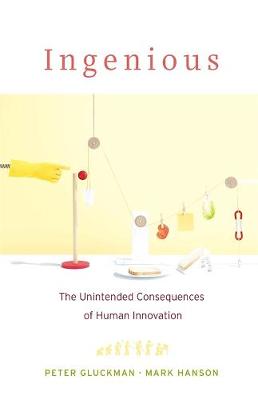As humans evolved, we developed technologies to modify our environment, yet these innovations are increasingly affecting our behavior, biology, and society. Now we must figure out how to function in the world we’ve created.
Over thousands of years, humans have invented ingenious ways to gain mastery over our environment. The ability to communicate, accumulate knowledge collectively, and build on previous innovations has enabled us to change nature. Innovation has allowed us to thrive.
The trouble with innovation is that we can seldom go back and undo it. We invent, embrace, and exploit new technologies to modify our environment. Then we modify those technologies to cope with the resulting impacts. Gluckman and Hanson explore what happens when we innovate in a way that leads nature to bite back. To provide nourishment for a growing population, humans developed methods to process and preserve food; but easy access to these energy-dense foods results in obesity. To protect ourselves from dangerous pathogens we embraced cleanliness and invented antibiotics, which has led to rising rates of autoimmune diseases and antibiotic-resistant bacteria. More recently, our growing dependence on the internet and social media has been linked to mental health concerns and declining social cohesion. And we are only at the beginning of the digital transformation that will influence every part of our existence. Our ingenuity has not only changed our world—it has changed us.
Focusing on immediate benefits, we rarely pause to consider the longer-term costs of innovation. Yet we are now starting to see how our choices affect the way our brains develop and our bodies function. The implications are profound. Ingenious opens our eyes to the dangers we face and offers solutions we cannot ignore.
- ISBN10 0674976886
- ISBN13 9780674976887
- Publish Date 15 October 2019
- Publish Status Active
- Publish Country US
- Imprint Harvard University Press
- Format Hardcover
- Pages 336
- Language English
